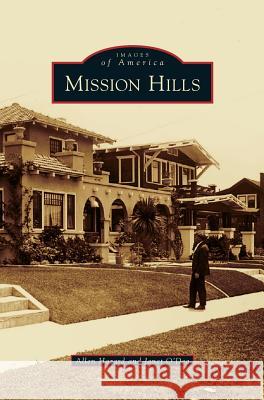Mission Hills » książka
Mission Hills
ISBN-13: 9781531677213 / Angielski / Twarda / 2015 / 130 str.
Several visionaries shaped the character that defines present-day Mission Hills. First, there was Sarah Miller, stepdaughter of Captain Johnston of the SS Orizaba. She inherited land from him and built a dream home overlooking Old Town and the Pacific Ocean. There was also Kate Sessions, the mother of Balboa Park, whose nursery growing grounds just outside the original Mission Hills subdivison proved difficult for her clientele to traverse, leading her to convince transportation mogul John D. Spreckles to expand the streetcar route to accommodate her business. In 1905, George Marston, a San Diego civic leader, commissioned landscape architect and urban planner John Nolan to implement a development plan for the city. Nolan's plan, however, was never adopted. In 1908, as if to prove what was possible, Marston's syndicate formed the restricted subdivision of Mission Hills. Then, in 1909, the city announced plans to celebrate the opening of the Panama Canal. The fuse was lit, and the boom that followed brought builders and skilled artisans to San Diego. As a result, Mission Hills became architecturally magnificent.
Several visionaries shaped the character that defines present-day Mission Hills. First, there was Sarah Miller, stepdaughter of Captain Johnston of the SS Orizaba. She inherited land from him and built a dream home overlooking Old Town and the Pacific Ocean. There was also Kate Sessions, the mother of Balboa Park, whose nursery growing grounds just outside the original Mission Hills subdivison proved difficult for her clientele to traverse, leading her to convince transportation mogul John D. Spreckles to expand the streetcar route to accommodate her business. In 1905, George Marston, a San Diego civic leader, commissioned landscape architect and urban planner John Nolan to implement a development plan for the city. Nolans plan, however, was never adopted. In 1908, as if to prove what was possible, Marstons syndicate formed the restricted subdivision of Mission Hills. Then, in 1909, the city announced plans to celebrate the opening of the Panama Canal. The fuse was lit, and the boom that followed brought builders and skilled artisans to San Diego. As a result, Mission Hills became architecturally magnificent.











